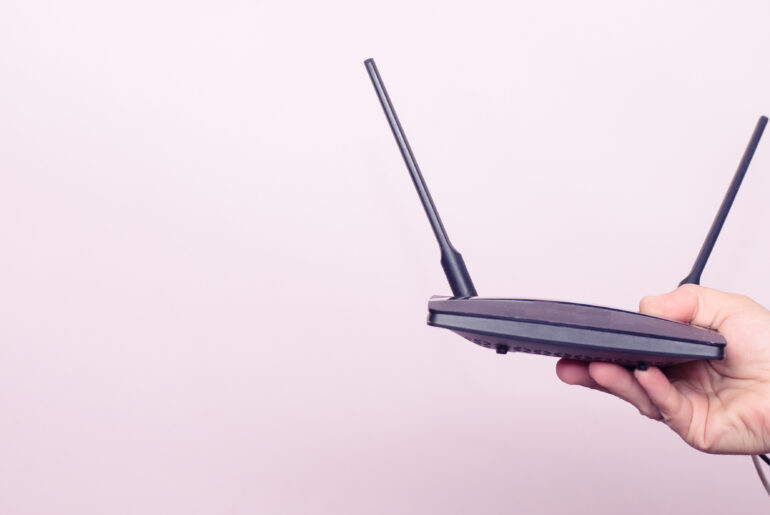Billions of emails are transmitted over the Internet each day. As one of the most popular forms of communication, we rely on email to send and receive important files, messages, and more. However, when you need to send sensitive information, how can you ensure that your privacy remains intact?
One of the most secure methods for sharing private data is to send an email anonymously. But how can you do that and ensure that the information won’t be traced back to you? And how can you safely receive an email that contains such sensitive data? There are a variety of ways to send emails anonymously, but which of them are safe? Take a look below as we explore the options that Internet users leverage to securely send and receive anonymous emails.
Why Do Users Send Anonymous Emails?
Sending an email anonymously is often used by those who want to share important information without revealing their identity. Reporting a crime in your neighborhood or an abuse of power in your workplace? Chances are, you might not want your name attached. Remaining anonymous can ensure your privacy and your safety while still getting important information into the right hands.
Many corners of the Internet are filled with cybercriminals waiting to gather your information and use it to their advantage. Hackers have found a variety of ways to manipulate private data they obtain, including selling it to the highest bidder. Avoiding these dangerous situations isn’t easy, but using an anonymous email to send sensitive information can help.
How can you be sure that the email you’re sending is completely confidential and anonymous? Is there a way to prevent your message from being tracked or traced back to you? There are several reliable and safe methods of composing and distributing email anonymously.

How Can I Send Email Anonymously?
Regardless of why you need to send an anonymous email, one of the most important aspects is ensuring your privacy. Keeping yourself and your sensitive information safe from prying eyes is one of the main reasons that anonymous emailing exists. Although masking your IP address is a good way to protect important data, there are other methods of communicating anonymously. We cover some of the most popular ways of distributing emails anonymously below.
Establishing a “Burner Account” for Anonymous Emails
The term “burner account” refers to the temporary nature of the product, device, or service. Anything described as a “burner” is meant to be disposable. Burner email accounts are useful for sending and receiving anonymous emails because they expire within a set period. This means that the burner account and its messages will be deleted within a specific, predetermined length of time. As a result, the account cannot be traced back to the original user who created it. There are a variety of services online that allow users to create temporary accounts for anonymously distributing and receiving emails.
However, some sites that give users the ability to create burner accounts may present hidden security threats. Depending on whether the email server is encrypted or not, users run the risk of encountering serious privacy issues. Use a robust VPN when sending or receiving anonymous emails to strengthen your defenses against possible security attacks.

Creating a New Email Address for Sending and Receiving Anonymous Messages
Another method of anonymous emailing is to make a new account that isn’t associated with you in any identifiable way. This can be done on any email platform by signing out of your existing account and creating a new one. When making a new email account for anonymous emails, it’s important to avoid using any identifiable information. This includes your real name, birth date, and telephone number, all of which make it easier for third parties to uncover who manages your account.
When making a new account, be sure not to provide an email address that can be traced back to you. Certain email hosting services require you to submit a backup email address for safety or verification purposes. By providing this information, you increase the likelihood that your private messages will be tied back to you.
{ “@context”: “https://schema.org/”, “@type”: “HowTo”, “name”: “Create a New Anonymous Email Address”, “description”: “How to create an anonymous email address on your current provider.”, “step”: [{ “@type”: “HowToStep”, “text”: “Sign out of your current email account and create a new one.”, “name”: “Sign out” },{ “@type”: “HowToStep”, “text”: “Avoid using any identifying information when creating it.”, “name”: “Create account” },{ “@type”: “HowToStep”, “text”: “Log in to a VPN to prevent the email server from tracking your IP address.”, “name”: “Sign in to a VPN” }] }- Sign out of your current email account and create a new one.
- Avoid using any identifying information when creating it.
- Log in to a VPN to prevent the email server from tracking your IP address.
Even if you create a new account, email servers can trace messages back to you using your IP address. A reliable VPN can significantly strengthen the quality of your privacy and prevent access to your IP’s location.

Anonymous Email Messaging with Encrypted Accounts
Encrypted messaging is used to send and receive important data, files, and other information that users hope to keep private. Unlike a standard email account or a burner account, they can’t be detected or identified through encryption. This means that neither the server nor any third parties can access your IP address or any identifying information.
Certain providers have features such as “self-destructing accounts” which terminate like burner accounts but provide encrypted protection. Companies like CounterMail and Mailfence give users the ability to safely send and receive anonymous emails on secure servers.
Using a Strong VPN to Protect Anonymous Emails
Internet service providers (ISP) can still monitor your anonymous email activity regardless of the platform you use to send it. While they can’t see what the anonymous emails contain, they can still use your IP address to identify you. The IP address assigned to your devices is a personalized label that facilitates location addressing. While this can be useful for information like local weather reports, it presents a challenge when trying to remain anonymous. In certain legal situations, your IP address can even be given to investigators by your ISP as evidence.
The best way to prevent IP address tracing is to use a safe VPN, especially when sending anonymous emails. Protecting your location and any identifying data is key to safely sending private information. With a VPN, you can reroute your location and prevent any third parties from prying into your activity. Masking your IP address with a VPN is an important step in securing your privacy and anonymity.
Send Messages Safely with PrivadoVPN
Anonymous messaging can be necessary when sending sensitive information or private data. A VPN protects both you and your recipients while ensuring that your message is delivered securely. PrivadoVPN provides users with a way to safely hide their IP addresses from unwanted surveillance or attack. Our global servers allow you to redirect your location and provide security for anonymous emailing, faster connections, and more.
If you’re looking to safely deliver anonymous emails or enhance your security, use a reliable VPN that you can trust.
Download PrivadoVPN
Protect your privacy with a world-class VPN. Sign up for premium access to PrivadoVPN and get unlimited monthly data, access to 300+ servers from around the world, and up to 10 simultaneous connections. Get a top-rated VPN that can secure your privacy at home, at work, or on the go.
Sign up for PrivadoVPN today!




